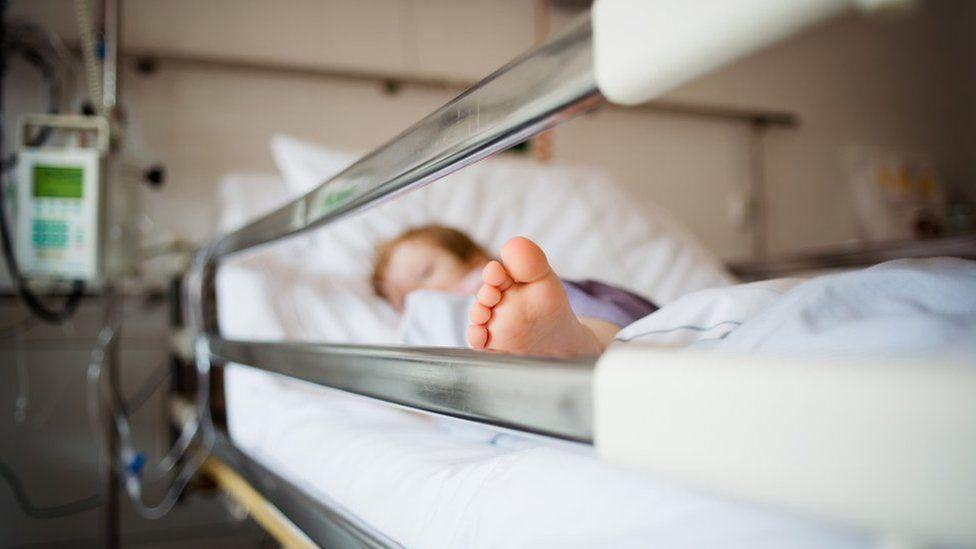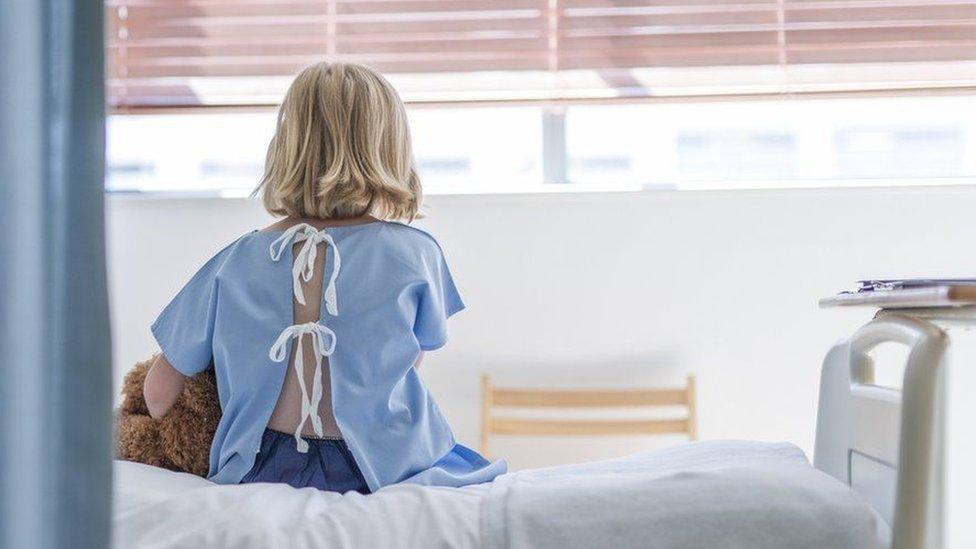Sudden onset hepatitis: 16 Northern Ireland children treated
- Published

There have now been 16 cases of sudden onset hepatitis in young children in Northern Ireland, the Public Health Agency has said.
One child required a liver transplant, while others received specialist treatment in other parts of the UK.
However, the PHA said the "vast majority of children have recovered completely".
The cases are where the disease has not been linked to any of the pre-existing causes of hepatitis in children.
There have been hundreds of cases in countries around the world including the UK and the Republic of Ireland.
"If you have a child who is showing signs of jaundice where their skin or the whites of their eyes are showing a yellow tinge, please do seek urgent medical attention," Dr Gillian Armstrong of the PHA said.
"The risk to the overall population here is low, it is relatively rare and the vast majority of children have recovered completely without any long-term effects.
"However, a very small number have had significant health complications and required liver transplant."
She said among the possible factors for the rise in cases is a link to adenovirus, a relatively common childhood infection.
"There are a range of other possible causes which are currently being investigated, including a number of other infections, as well as looking into toxins and environmental exposures," Dr Armstrong said.
"We can confidently say that there is no link to the Covid vaccine as the vast majority of these children are too young to have been offered the vaccine.
"In terms of prevention, hand hygiene and respiratory hygiene are the most important methods of preventing and controlling the spread of the infections being investigated."
Earlier this month, a child being treated for an acute form of hepatitis in the Republic of Ireland died.
A second child also being treated for the illness received a liver transplant.
Both cases were linked to the unexplained type of hepatitis being reported in children.
Related topics
- Published4 May 2022

- Published4 May 2022

- Published25 April 2022
